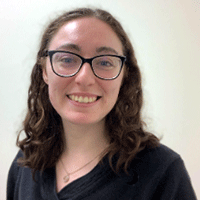- Membership & Community
-
Publications & News
- Physiology Journals
-
Newsroom
-
The Physiologist Magazine
- 2019
- 2020
- 2021
- 2022
- 2023
- 2024
-
In Depth
- In Depth—The Bear Necessities
- In Depth: Understanding Circadian Rhythms
- In Depth: Understanding Data
- In Depth: Exercise Physiology: Take Your Medicine at the Gym
- In Depth: Neurodegenerative Disorders
- Imaging Methods Unveil the Invisible
- Rewiring the Brain: Breakthroughs in Neural Therapy
- What’s Coming Next for GLP-1 and Metabolic Disease Treatment
- Understanding the Effects of Maternal Exercise
- How Muscles May Hold Cues to Better Sleep
-
Mentoring Forum
- Net Worth
- Take Care
- You … In Charge
- Work. It. Out.
- Working Off-site
- Location, Location, Location?
- Student Support
- Progressing to Postdoc
- Relationship Building
- Let’s Get It Started
- What Do We Value?
- It’s a Postdoc Life
- Coronavirus Contributions
- Creative Communications
- Selection Process
- Conference Connections
- Postdoc Appreciation
- Research Rewards
- Focus on Teaching
- Industry Insights
- Balance Beam
- Post Postdoc
- If You Build It
- Talk It Through
- Forward Bound
- I’ve Earned My PhD. Now What?
- University Life
- Tips for Trainees
- Time Travel
- Prepare Now for the Career You Want
- Landing a Postdoctoral Researcher Position
- Becoming a Physician-Scientist
- Mastering the Art of Science Communication
- Setting Yourself Up for Success in the Lab
- From Postdoc to Professor: Key Strategies for Success
- How to Stay Motivated in Challenging Times
- Staying Motivated Throughout Your Science Career
- Managing Stress and Workload During Your PhD
-
Policy IQ
- Policy IQ—2023 in Review: How APS Advocated on Behalf of Physiologists
- Policy IQ—Supporting Equitable Research
- NIH's Road Map to a Better Postdoc Experience
- The Career Path to Science Advocacy
- Culture of Safety: Stopping Sexual Misconduct
- Physiologists Return to Capitol Hill
- Tips for Scientists to Communicate about Animal Research
- Science Advocacy in a New Political Landscape
- Tips for Making the Call to Congress
- Science Spending Is an Investment
- Advocacy Up Close and Personal
-
Publish with Polish
- Publish with Polish
- The Layers of Open Science
- Take Your Content From Meeting to Manuscript
- APS Journals to Highlight Women’s Health Research
- What Subscribe to Open Means for APS Members
- The 5 Pillars of Publish with Purpose
- 3 Types of Metadata Researchers Should Know About
- Navigating Open Access and New Licensing Options
- Journal Manuscript Prep Made Easy
- How to Navigate Public Access Requirements
- Ensuring Public Trust in Publishing
-
Under the Microscope
- Equine Inspiration
- Inquiring Minds
- The Power of Teaching
- The Love of Physiology
- Understanding Women's Physiology Across the Lifespan
- Studying Human Health in Extreme Environments
- Advancing Kidney Health and Physiology Research
- How Gut Microbes Shape Blood Pressure and Drug Response
- Battling Malaria
- Exploring the Microbiome
- Mentoring Q&A
- Evolution
- Baseline by Scott Steen, CAE, FASAE
- 2025
- Find Us on Social Media
-
The Physiologist Magazine
-
Professional Development
-
Meetings & Events
-
American Physiology Summit
- #APS2024 Overview
- Abstracts
- Awards at the Summit
- Award Lectures
- Career Networking Lunch Form
- Dates and Deadlines
- Advocate for Health Research Funding
- Hotel Information
- Information for International Travelers
- Industry Partners
- Keynote Speaker—James Rothman, PhD
- Keynote Speaker—George Brooks, PhD, FAPS
- Keynote Speaker—Holly Ingraham, PhD
- Mobile App
- NIH and NSF Program Officer Panel Discussion Form
- Physical Poster Information
- PhysioHub
- Pre-Summit Events
- Registration
- Section & Group Banquet Tickets
- Social Events
- Speaker Audiovisual Instructions
- Summit FAQs
- Summit Newsroom
- Travel & Transportation
- Undergraduate Program Book
- Liability Waiver
- Industry Partners
- 2026 American Physiology Summit
- Joseph Erlanger: Pioneering Nerve Research and APS Leadership
- 2023
- 2024
- Scientific Integrity Policy
- Exhibitor Registration Form
- New Trends in Sex Differences and Women’s Health Research
- Control of Renal Function in Health and Disease 2026
- Comparative Physiology Conference 2026
- Webinars
- Related Meetings
- Future APS Conferences
- Conference Policies
-
American Physiology Summit
- APS Awards
-
Career & Professional Development
-
Career Gateway
-
Resources
- Transcript—Leading Through Conflict and Difficult Conversations
- Transcript—Managing Conflict with Colleagues
- Transcript—Leading a Team Through Conflict
- Transcript—Providing Difficult Feedback
- Transcript—Team Dynamics and Culture Primer
- Transcript—Building a Team
- Transcript—Leading a Team Assigned to You
- Transcript—Creating a Team Culture
-
Resources
- Career Navigator
- Center for Physiology Education
- Virtual Courses
- Physiology Job Board
- APS Graduate Physiology & Biomedical Science Catalog
-
Career Gateway
-
Meetings & Events
-
Advocacy & Resources
- Science Policy
-
Resources
- Researcher Resources
- Educator Resources
- Trainee Resources
- Student Resources
-
APS Graduate Physiology & Biomedical Science Catalog
- Des Moines University
- George Washington University
- Michigan State University
- New York Medical College
- Nova Southeastern University
- Pennsylvania State University
- Texas A&M University
- Texas A&M University Medical Physiology
- Stony Brook University
- University of Alabama at Birmingham
- University at Buffalo
- University of Colorado
- University of Michigan
- University of Minnesota
- University of Missouri-Biomedical Sciences
- University of Nebraska Medical Center
- University of Nevada, Reno
- University of South Carolina School of Medicine
- University of Tennessee Health Science Center (UTHSC)
- University of Texas Health Science Center
- Virginia Commonwealth University
- Wayne State University
- Physiology Department Catalog Submission Form
- Boston University
- Women's Health Research Initiative
- Career Gateway
- About APS
 Long Beach, Calif. (April 18, 2023)—Researchers from the University of Vermont have found that eating full-fat yogurt on a daily basis may help lower fasting glucose levels in middle-age and older adults with prediabetes. The research team will present their work this week at the American Physiology Summit, the flagship annual meeting of the American Physiological Society (APS), in Long Beach, California.
Long Beach, Calif. (April 18, 2023)—Researchers from the University of Vermont have found that eating full-fat yogurt on a daily basis may help lower fasting glucose levels in middle-age and older adults with prediabetes. The research team will present their work this week at the American Physiology Summit, the flagship annual meeting of the American Physiological Society (APS), in Long Beach, California.
“We're hoping this pilot trial serves as an impetus for further research to truly clarify the relationship between dairy fat intake and blood glucose control.” —Victoria Taormina
As obesity and type 2 diabetes continue to be a growing epidemic in the U.S., many national health organizations, including the American Heart Association, recommend eating low- or nonfat dairy options, such as milk, cheese and yogurt, as part of a “heart healthy” diet. However, recent research suggests that—contrary to the messages the public often receives about dietary fat, weight gain and chronic disease—full-fat dairy products may be beneficial to blood glucose and fat metabolism.
The researchers studied a group of adult volunteers between the ages of 45 and 75. Most of the participants were diagnosed with prediabetes—one person had type 2 diabetes—with an average fasting blood glucose level of 101.1 milligrams per deciliter (mg/dL). Prediabetes, a condition in which blood sugar is elevated but has not yet reached the level of type 2 diabetes, is defined as a fasting blood glucose level between 100 and 125 mg/dL, explained Victoria Taormina, PhD student and first author of the study.
In this crossover study, the volunteers participated in a three-week block when they ate three servings of plain, full-fat yogurt each day. The same volunteers ate three servings of fat-free yogurt daily during a different three-week span. The amount of yogurt consumed daily varied for each person based on their individual calorie and nutrient needs. However, based on a 2,000-calorie diet, this was 510 grams (approximately 17 ounces) of yogurt each day. While participants followed the full-fat diet, they consumed 17 grams of dairy fat per day.
The research team found that after the full-fat yogurt portion of the study, the participants’ average fasting glucose levels dropped to 97.7 mg/dL, which is considered in the “normal” range.
“This research is part of a growing body of evidence that contradicts the current narrative in dietary recommendations of national and international health authorities to opt for low- or nonfat dairy, instead of full-fat dairy products,” Taormina said. “We're hoping this pilot trial serves as an impetus for further research to truly clarify the relationship between dairy fat intake and blood glucose control.”
This work will be featured in a virtual press conference from 1:30–2:15 p.m. EDT (10:30–11:15 a.m. PDT) on Tuesday, April 18, 2023 (register to attend).
NOTE TO JOURNALISTS: The American Physiology Summit will be held April 20–23, 2023, in Long Beach, California. To schedule an interview with the researchers, conference organizers or presenters, contact APS Media Relations or call 301.634.7314. Find more highlights from the meeting in our Summit Newsroom.
Physiology is a broad area of scientific inquiry that focuses on how molecules, cells, tissues and organs function in health and disease. The American Physiological Society connects a global, multidisciplinary community of more than 10,000 biomedical scientists and educators as part of its mission to advance scientific discovery, understand life and improve health. The Society drives collaboration and spotlights scientific discoveries through its 16 scholarly journals and programming that support researchers and educators in their work.
Related Content
- APS Members Elect New Leaders for 2025–2026
- Heat Really Does Feel Hotter After a Cold Season
- Scott Steen to Retire as CEO of the American Physiological Society
- Popular Sugar Substitute May Harm Brain and Heart Health
- Planning to Hit the Bars? Be Sure to Hit the Gym First
- Wolfgang Kuebler Receives American Physiological Society’s Presidential Service Award at American Physiology Summit
- Erlanger Family Gifts Renowned Physiologist’s Nobel Medal to APS
 Contact Us
Contact Us
Journalists may contact APS Communications to:
- Interview an expert
- Request a copy of a study
- Get physiology background and resources
Email: communications@physiology.org or call 301.634.7314.

